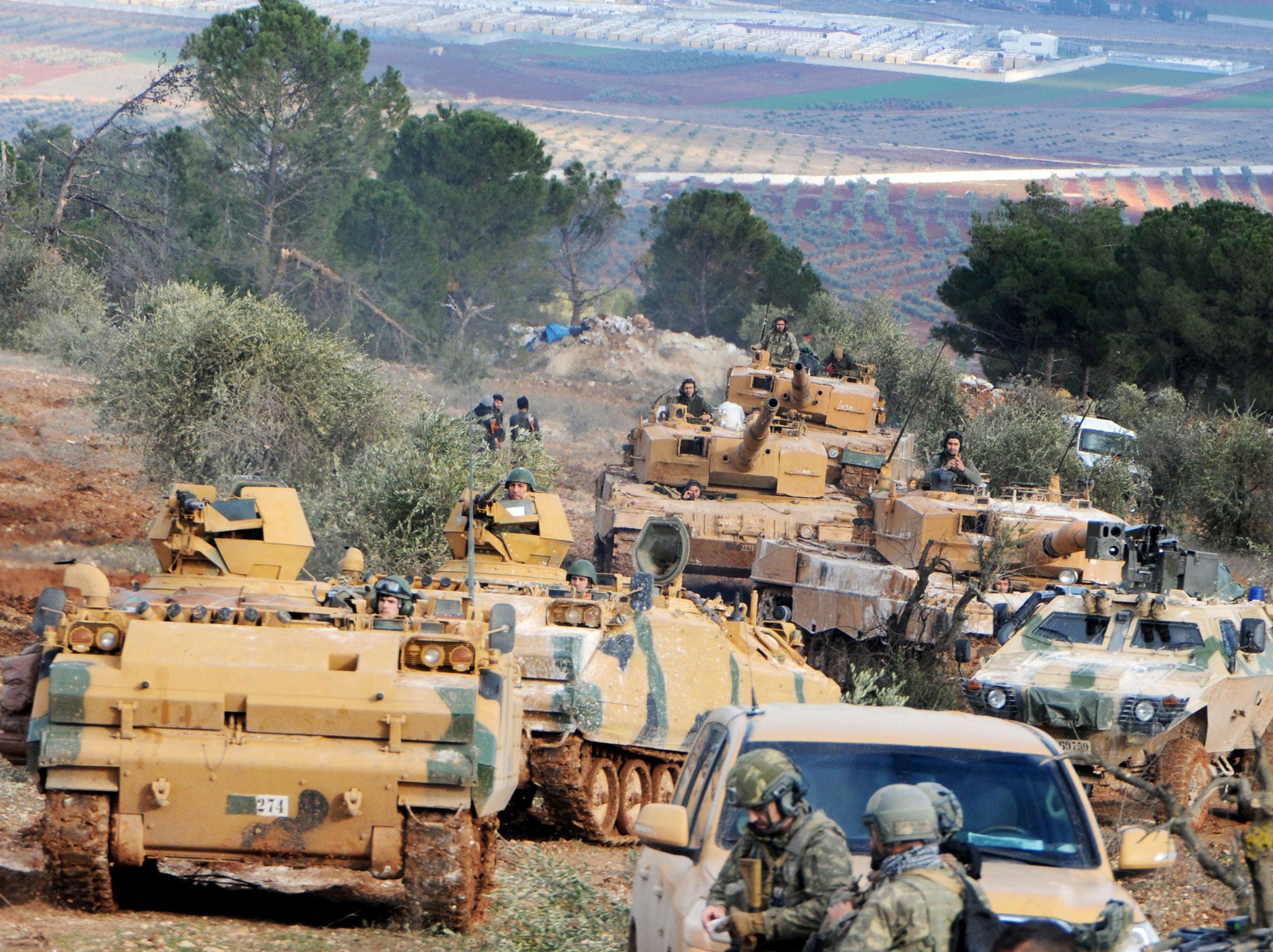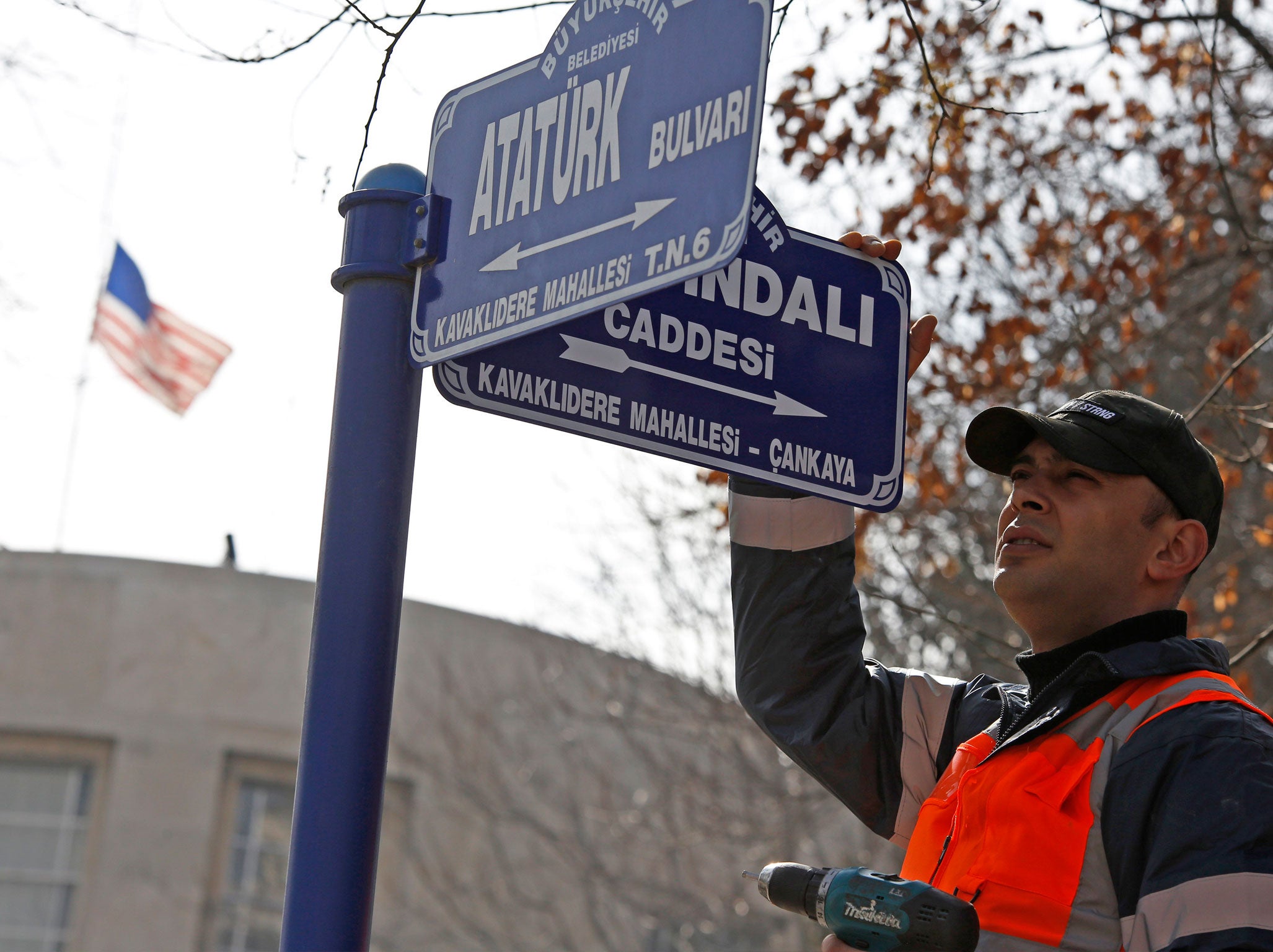Syria’s Assad to deploy troops to help Kurdish fighters battling Turkish forces in Afrin
Deployment takes place after agreement reached with the People’s Protection Units (YPG), which has established an enclave 20 miles from the border

The conflict in Syria may escalate significantly after the Assad regime declared that it will send troops to help Kurdish fighters defending the town of Afrin against Turkish forces.
The deployment, which may also include Iranian-controlled militiamen, will take place, said Damascus, after an agreement was reached with the People’s Protection Units (YPG) group, which has set up a Kurdish enclave across the Turkish border.
“Popular forces will arrive in Afrin within a few hours to support its people’s stand against the Turkish regime’s attack on the area and its people,” announced Sana, the Syrian state news agency. The forces, continued Sana, will position themselves at the frontier – a move that opens up the possibility of direct clashes with the Turks and allied Syrian Arab militias.
The reference to “popular forces” indicate that the initial units may not be regular Syrian army but paramilitaries composed of, among others, Shia Afghans recruited in Iran, and the Shabiha – the militia of Syria’s ruling Alawite community.
Turkish foreign minister Mevlut Cavusoglu said in response to the Syrian action: “If they [the Syrians] are entering Afrin to protect YPG/PKK, nobody can stop the Turkish army.” However, he added that “there will be no problem” if the regime forces were being sent to control the Kurds. “We have always expressed our support for Syria’s territorial integrity. We are one of the countries with the utmost support for it,” he insisted.
Nuri Mahmoud, a spokesman for the YPG, also spoke of “preserving the unity of Syria”. He said: “We are calling on the Syrian army to protect Afrin because we would love to preserve a unified Syria. Syrian soldiers have not arrived yet, but they will. The international community continues to address the Syrian leadership as sovereign and we call on this authority to protect its territory.”
There has, however, been dispute between the Syrian regime and the Kurds over the latter's presence, with demands from Damascus that the YPG hands over security control to the Syrian force, allows in regime officials and flies the Syrian flag to show that it acknowledges Syrian rule.
The Kurdish fighters have been extensively used, and supplied arms, by the US and the West in the campaign against Isis, and now control around 30 per cent of Syrian territory. There have been sporadic clashes between them and regime forces, but on the main the two sides have avoided each other.
The Kurds have complained of being abandoned by the West at Afrin and have sought to establish relations with Russia, which carried out some training of Kurdish fighters before withdrawing as Turkey began its assault last month. It is unclear at this stage whether Moscow played any part in organising the deal between Damascus and the YPG.
The Turkish government of Recep Tayyip Erdogan, in Ankara, says it is determined not to allow the Kurds to set up a defacto state across its borders. It accuses the YPG of being a part of PKK, which has fought for Kurdish autonomy in Turkey for more than three decades. YPG denies having any military or political links with the PKK.

Turkey has supported rebels fighting the Assad regime since uprisings began in 2011, but there has been no direct armed confrontations between the two countries since the Syrians shot down a Turkish aircraft in 2012, killing its two crew members.
The deal comes as Turkish authorities replaced the name of a street where the US embassy is located in Ankara with the name of Turkey’s military offensive in Syria.

Ankara municipal workers put up the new sign in Turkish for Olive Branch Street, replacing the one named after late Ankara governor Nevzat Tandogan.
When asked last week about the upcoming name change, US State Department spokeswoman Heather Nauert said “they can call it whatever they want. As long as it’s in accordance with their own law, we’re fine with that”.
Join our commenting forum
Join thought-provoking conversations, follow other Independent readers and see their replies
Comments
Bookmark popover
Removed from bookmarks